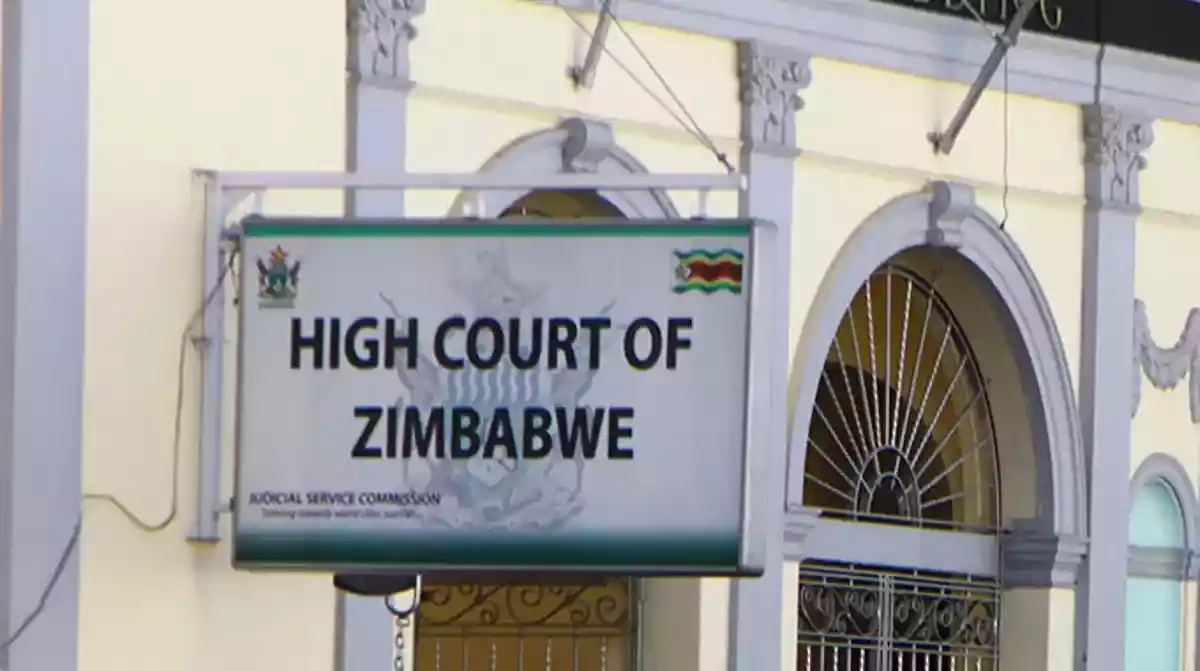
THE High Court has referred a case in which opposition activist Netsai Marova is suing the police for ZWL5 million after the leaking of sensitive and confidential photographs of her nude body to the Constitutional Court (ConCourt).
The photos were captured at a local hospital as part of evidence gathering.
Marova, who was allegedly abducted by suspected State security agents in 2020 together with Citizens Coalition for Change legislator Joanah Mamombe and councillor Cecilia Chimbiri, was allegedly tortured before being dumped in Muchapondwa village in Bindura.
In her lawsuit, Marova, who is in exile, cited Chief Superintendent Evelyn Phillip, Detective Chief Inspector Morgan Chafa, Commissioner Priscilla Makotose, ZRP Commissioner General and the Home Affairs and Cultural Heritage minister.
High Court judge Justice Siyabona Musithu referred the matter to the Constitutional Court in terms of the court rules.
According to court papers, on March 4, 2021, Marova instituted a summons claim against the defendants jointly and severally, one paying the others to be absolved, for ZWL$5 000 000 being general damages for unwarranted and malicious affront to her dignity.
This emanated from the circulation of sensitive and confidential photographs of her naked body that had been captured as part of evidence gathering.
Marova also sought interest on the amount claimed at the prescribed rate from the date of issue of summons to the date of full payment, including costs of suit.
- Fresh land invasions hit Whitecliff
- ‘Govt spineless on wetland land barons’
- Pomona cash row escalates
- Border Timbers targets European markets
Keep Reading
On May 13, 2020, Marova was allegedly abducted by unknown persons, who subjected her to inhuman and degrading treatment, including sexual assault.
As a result of the torture, Marova was hospitalised at a hospital in Waterfalls, Harare. She reported the matter to the police.
On May 15, 2020, Phillip, in the company of Dr Nyamukure, went to the hospital ward where Marova was receiving treatment.
Phillip identified herself as a member of the police forensic department and photographed Marova’s nude body as part of evidence gathering.
She also captured pictures of Marova’s colleagues, Chimbiri and Mamombe, who were also hospitalised at the same institution.
Phillip reportedly requested Marova to remove her clothing and expose various parts of her body.
Marova argues that she understood that the photographs were strictly for investigative purposes.
She averred that on May 18, 2020, she became aware that the photographs that were captured in strict confidence and for investigative purposes were circulating on several social media platforms.
Marova indicated that the circulation of the sensitive pictures on various social media platforms was a result of Philip’s actions, who was granted access to capture them.
She argued that the unlawful circulation of photographs of her naked body was an insult that caused her great pain, submitting that it was made without reasonable grounds and, therefore, negligent, malicious and unlawful.
Marova said Phillip, who unlawfully released the sensitive photographs, was acting in the course and scope of her employment under the control or instruction of the Commissioner-General and the minister.
She also submitted that the Commissioner-General and the minister were vicariously liable for their employee’s actions.
The damages claimed were broken down as contumelia (ZWL2 000 000, injuria (ZWL3 000 000) and interest on the above sum.
However, the defendants entered an appearance to defend, saying the claim had been prescribed after she served them summonses after the stipulated period of eight months as provided for in the Police Act.
The defendants sought the dismissal of Marova’s claim with costs.
In her response to the special plea, Marova denied that her claim had expired contending that section 70 of the Police Act is unconstitutional and, therefore, of no force or effect.
Marova further denied that her claim had expired owing to a supervening impossibility based on the COVID-19 pandemic, which prevented her from filing her summons within the period prescribed in section 70 of the Police Act.
She argued that there was no constitutional basis for the short prescription period when many other arms of the Executive were all susceptible to the three-year prescription period.
Justice Musithu said the court was satisfied that the request to refer the matter to the Constitutional Court was not frivolous or vexatious as the constitutional question that arose for determination was critical to the resolution of the plea in bar pending before the court.
“Resultantly, it is ordered that under s175(4) of the Constitution of Zimbabwe, the question of the constitutionality of s 70 of the Police Act [Chapter 11:10] is hereby referred to the Constitutional Court for determination.”










